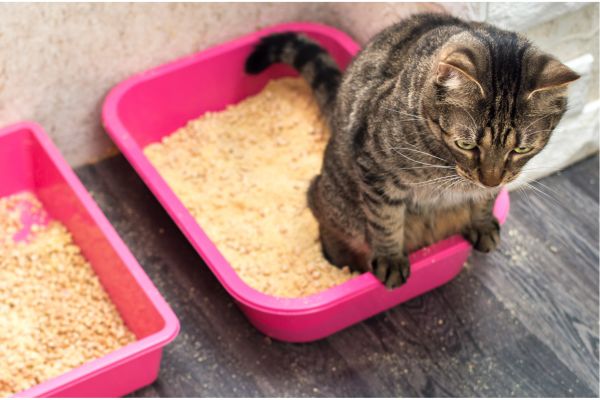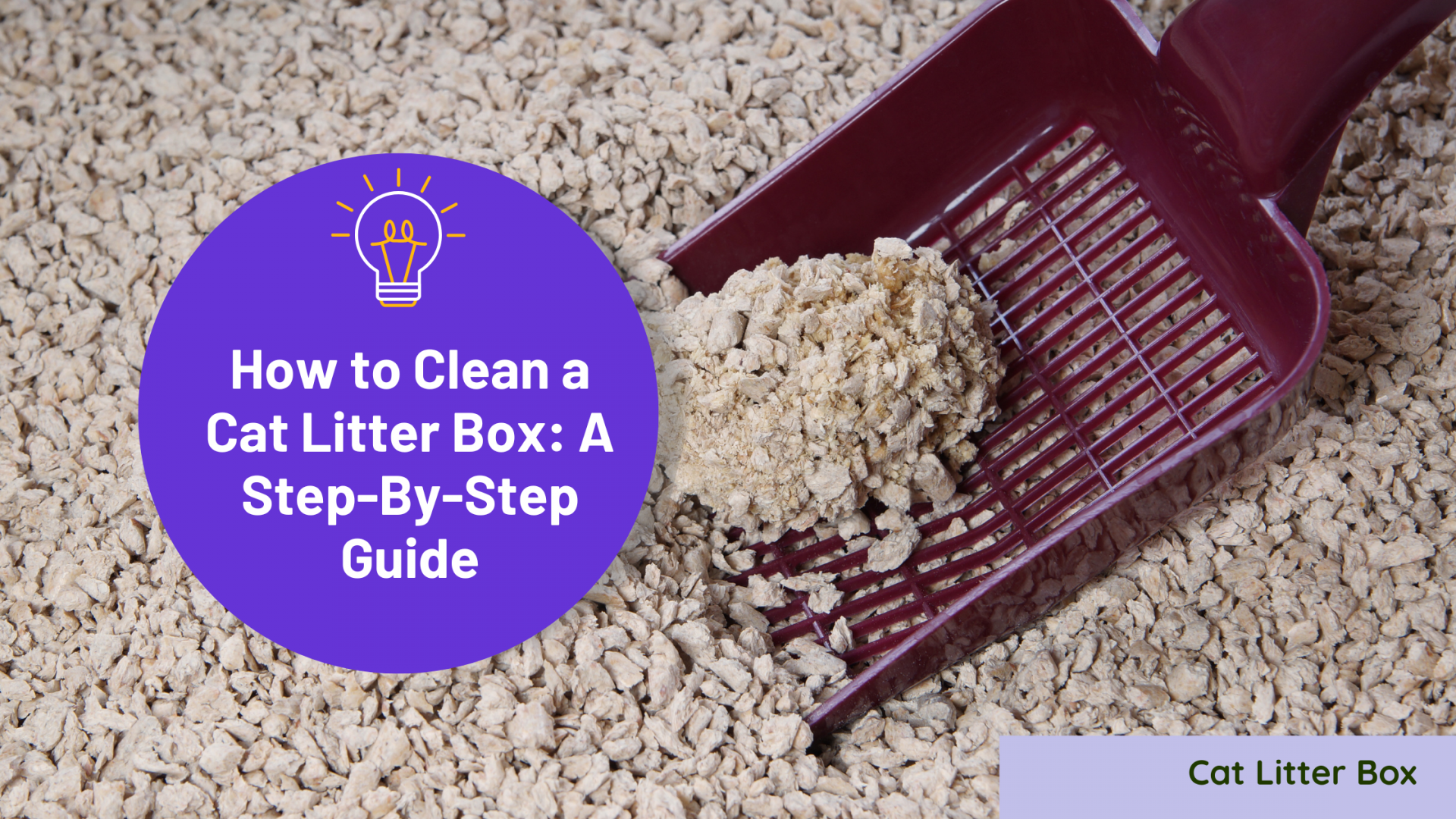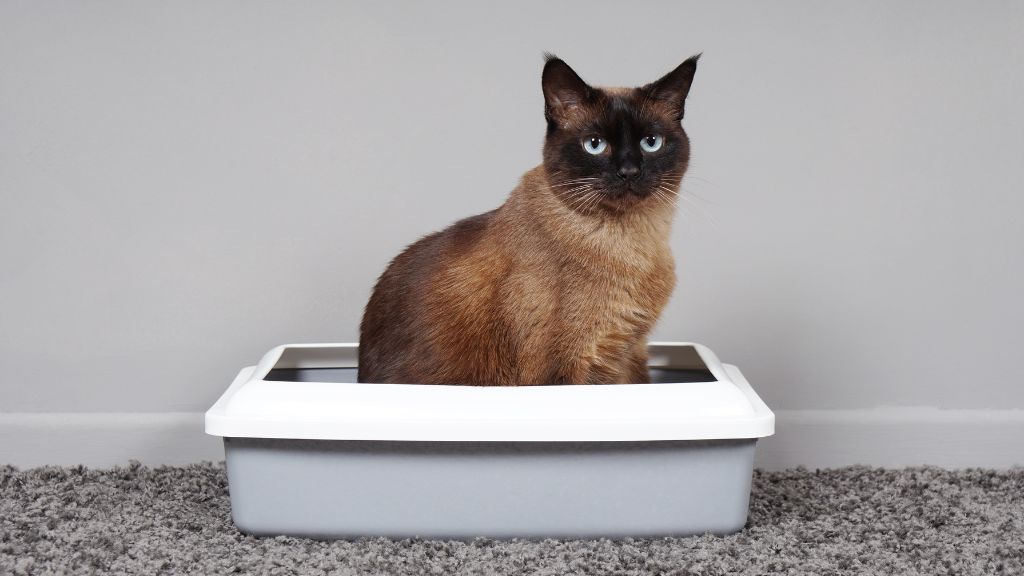
While there are so many wonderful things about owning a cat, cleaning their litter box is generally not at the top of that list.
Even though this task can be unpleasant at times, litter box cleaning is essential if you want to provide your furry friend with a clean and comfortable place to do their business while maintaining your home’s hygiene at the same time.
If you’re new to the cat parenting world, we’re going to provide you with all the information you need to understand how to clean a cat litter box quickly and easily.
The Importance of Regular Litter Box Cleaning
If you’ve ever smelled a litter box that hasn’t been cleaned in a while, you will know just how unpleasant those odors can be. However, as much as these bad smells can impact your home, your cat doesn’t love them either.
Remember, your kitty’s nose is far more sensitive than yours, which means they will be put off by a dirty litter box more quickly than you will. The result? They may just end up doing their business elsewhere in your home or holding it in, which isn’t good for anyone.
Not only does this impact the hygiene of your home, but your cat could end up with Feline Idiopathic Cystitis, which is a urinary blockage. Kidney and bladder infections are also possible.
Over and above dirty cat litter impacting your cat’s health, it can also affect your health and that of your family. A dirty litter box can lead to respiratory irritation, toxoplasmosis, and could even spread salmonella around your home.
How Often to Clean Your Cat’s Litter Box
Cat owners should give each litter box a basic clean daily.
If you’re using clumping cat litter, scoop out any solid waste and clumps right from the bottom of the box every day. Any unsoiled litter will automatically fall back into the box through your scoop.
For non-clumping cat litter, you can scoop out the solid waste before stirring the remaining litter, which will aid in better liquid absorption.
Over and above daily cleaning, it’s highly recommended that you wash the litter box with soap and water at least two or three times a month and replace all litter with completely fresh litter.
Supplies You Will Need for Litter Box Cleaning
You’re going to need the following items to clean your cat’s litter box effectively:
- Litter scoop. Buy the best quality litter scoop that you can. The more high-quality the plastic is, the longer it will last. The holes in the scoop should be large enough for any clean litter to fall back into the box after you scoop out the solid waste. Remember to keep your preferred litter in mind as some types have larger particles than others.
- Hand broom. It’s highly likely that some of the litter will fall outside the box during cleaning. Having a hand broom and dustpan on hand will ensure you can keep the area around the litter box clean – a vacuum can also work and may be easier to use.
- Plastic bags. If your cat litter isn’t biodegradable, you will not be able to flush it down the toilet, so have some small plastic bags available to get rid of dirty litter.
- Covered trash can. If you do need to dispose of your cat litter in a bin, it’s best to do so in a bin that has a lid to prevent odors from making their way into your home.
How to Clean Your Cat Litter Box
Now that you know what tools you will need, here are the steps to follow to clean your cat’s litter box:
Step 1: Empty the Litter Box
Before you empty your litter box, you may want to put on a mask and gloves to avoid exposure to any parasites and illnesses – it will also help with the smell.
If you’re doing your daily clean, scoop out all solid waste and stir the clean waste before topping up your litter box if necessary. You can now dispose of the waste in the toilet if it’s biodegradable or in a plastic bag in a trash can.
If you’re doing a monthly clean, take the entire litter box outside and empty the contents into a plastic bag before disposing of it in the bin. Emptying your litter box outside will also stop any odors from lingering in your home.
Step 2: Clean the Litter Box
If this is your monthly clean, get some warm water and soap ready. Pour the warm water into the empty litter box and allow it to soak for several minutes.
You can now stir in some unscented soap and use a disposable sponge to clean up any stubborn bits. Using an unscented soap will ensure your cat isn’t deterred by the scents after cleaning.
Be sure to clean the bottom, sides, and the outside of the litter box to get rid of any and all bacteria.
Step 3: Add Fresh Litter
Once the litter box is completely dry, you can slowly pour in a fresh batch of kitty litter. Aim for about four to five inches of litter, especially if your cat is prone to digging. A litter box with higher sides will also prevent excess litter from landing on your floor. You can now level out the cat litter to ensure your feline will want to use the fresh box.
There are a number of different types of litter to choose from, each of which has its own pros and cons. You can find out more about your options here.
Common Mistakes to Avoid When Cleaning a Litter Box
Let’s look at some of the most common mistakes cat owners make when cleaning their litter boxes:
- Leaving it too long. You may have a busy schedule, but not scooping your cat litter once a day will leave you with unpleasant odors that will affect your home and your cat’s willingness to use their litter box.
- One litter box for multiple cats. While some cats are happy to use the same litter box, it’s usually best to have more than one litter box in your home for multiple cats. Not only will this keep odors to a minimum, but it will reduce the need to clean the litter box more often than necessary.
- Flushing any type of cat litter. Not all types of cat litter are safe to flush. You should only be flushing biodegradable cat litter. It should also be noted that some states such as California prohibit this completely, so make sure you’re legally allowed to flush your cat litter.
- Using a litter box that’s too small. Smaller litter boxes are fine for kittens, but if you don’t upgrade to a bigger size, your cat could end up doing their business in other areas of your home.
- Never conducting a deep clean. Even though you don’t need to deep clean your cat’s litter box every week, it’s important to do it at least once or twice a month. This will not only reduce odors, but harmful parasites and bacteria too.
Final Thoughts
Cleaning a cat litter box is a relatively simple process and when you make a point of doing it regularly, you protect your cat’s health and keep your home free from harmful illnesses and unpleasant odors.
By using the right tools and a cat litter your feline is comfortable with, you can make your home a safe space for all who live in it, including your furry family members.
Cat Litter Cleaning FAQs
1. What is the best way to clean a cat litter box?
You should be removing any solid waste and topping the litter box up with clean litter once a day to maintain a clean home for you, your family and your cat.
However, you should also be deep cleaning your cat litter box at least once or twice a month. During a deep clean session, you should remove all the cat litter and wash the box out with warm water and unscented soap. You can then top the box up with fresh litter.
2. How often should you clean a litter box?
Your cat’s litter box requires daily maintenance. There should never be a buildup of solid waste and moist clumps as this can lead to odors and cause health issues for your feline friend. The entire cat litter box should also be cleaned with warm water and soap at least once a month, if not more to get rid of harmful bacteria and parasites.
3. Does vinegar disinfect a litter box?
If you want to disinfect your cat litter box, it’s best to stay away from harsh chemicals such as bleach and ammonia. Vinegar is a good natural alternative. When mixed with some warm water. Vinegar can remove bacteria and harsh smells. Just be careful not to use too much or your cat may be deterred by the scent and not want to use the litter box anymore.
4. Do cats like it when you clean their litter box?
Your feline friend absolutely loves having a clean litter box. In fact, many cats will want to jump straight in right after their litter box has been cleaned and even while their owner is cleaning it. Just like you want to use a clean bathroom, your cat wants to do their business in a clean space that doesn’t smell of excrement.


 0 comments
0 comments Copy link
Copy link Share on Twitter
Share on Twitter Share on Facebook
Share on Facebook Share on WhatsApp
Share on WhatsApp

Comments(0)